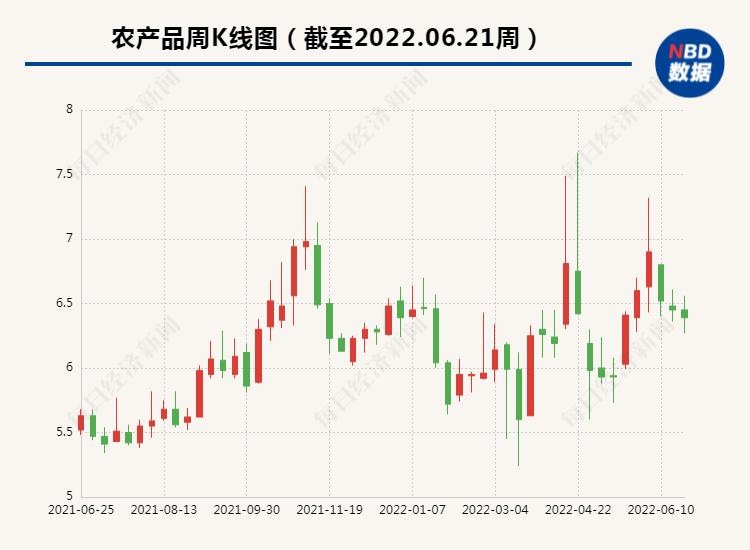In the first half of the year, 93 bond default real estate bond default rates reached 26.47%
Author:Economic Observer Time:2022.08.06

Guojin Securities analysis stated that compared with the previous reasons such as radical expansion, the reasons for the new main credit bond default in the first half of the year are more concentrated in the fundamental deterioration caused by the decline of the industry's prosperity, or for the epidemic, or fate Regulatory policy.
Author: Cai Yuekun
Figure: Tuwa Creative
In the first half of 2022, the default rate of real estate credit bonds reached 26.47%of the record. A new round of "breach of contract" in real estate bonds has become one of the significant appearances of the bond market default in the first half of the year.
According to Statistics of Guojin Securities, a total of 93 bonds in the first half of the year (including various substantive defaults and exhibition periods), a total of 60.1 billion yuan in defaults (including principal and interest), involving 33 credit bonds; in the same period last year last year, in the same period last year Compared with 32.12%, 48.90%, and 31.25%, respectively.
Among them, 12 new default subjects have been reduced compared with nearly 30 in the same period in 2021. Of the 12 new breach of breach of contract, 7 are real estate companies, accounting for nearly 60%.
Wind data shows that as of August 4, 280 default bonds between banks had 280 liquidated bonds, with a breach of contract balance of 268.7 billion yuan; 505 default bonds on the exchanges, 476.776 billion yuan in default balance. From the perspective of time distribution, 2019, 2020, and 2021 are the peak of credit bond default, with an overdue scale of about 170 billion yuan.
It can be seen that in 2022, the breach of credit bonds has improved, and the overall risk has declined. However, a significant increase in real estate bond defaults.
Guojin Securities analysis stated that compared with the previous reasons such as radical expansion, the reasons for the new main credit bond default in the first half of the year are more concentrated in the fundamental deterioration caused by the decline of the industry's prosperity, or for the epidemic, or fate Regulatory policy.
Regarding the significant increase in real estate bond defaults, Caixin Securities analysis stated that from the perspective of the industry, both ends of the supply and demand of the real estate industry were regulated by policy, which led to the downward payment of the sales of real estate companies. The credit risk of real estate is exposed, especially the weak qualification private real estate enterprises, and the credit risk incidents are frequent; from the perspective of the issuer, the issuer's radical expansion, a large amount of debt, and the deterioration of operating capabilities will drag the company's business loss and profitability The level decline, which has led to increasing the pressure on the company's debt repayment.
Real estate bond default rate is as high as 26.47%
One of the significant features of bond default in the first half of the year is that the breach of bonds in housing companies has increased significantly.
According to statistics from Guojin Securities, starting from 2021, real estate financing supervision has tightened sharply, the industry's prosperity has declined rapidly, domestic and foreign real estate bonds frequently default, a new round of "breach of contract" has emerged. Creating a record high. This data is less than 10%in the same period last year.
From the perspective of the new breach of breach of contract, in the first half of 2022, a total of 12 new credit bonds were added, 7 of which were real estate companies, namely Evergrande Real Estate, Longguang Holdings, Sunac Real Estate, R & F Real Estate, Shimao,,,, Jinke Real Estate and Rongqiao Group; four are the "contemporary" enterprises in Wuhan, which are contemporary groups, contemporary Mingcheng, contemporary investment, and Tianying investment; one is the private non -ferrous company Yanggu Xiangguang.
This round of real estate defaults originated from the rigorous regulatory policies, and real estate financing has been tightened.
Since 2020, the central bank, the Ministry of Housing and Construction, and the Ministry of Natural Resources have successively introduced the "three red lines", "concentration of real estate loans" and "22 -city concentrated land supply" policies, respectively, to limit the expansion of the real estate industry from financing and investment.
Guojin Securities said that the prosperity of the real estate industry continues to be sluggish and credit breach spreads. Moreover, the downturn in real estate sales further fell down the fundamentals of the real estate market. Although the regulatory policy has gradually relaxed since the third quarter of 2021, some real estate companies have slowed down the rhythm of land acquisition, and even layoffs, dispose of assets, and reduce expenditure, but in a short time, in a short time The liquidity is difficult to improve, the pressure on private housing companies is heavy, and the cash flow continues to flow out. Credit breach of contract gradually spreads from overseas debt to domestic debt.
However, Guojin Securities said that risk expectations are more sufficient and the market impact is relatively controllable. From the second quarter of 2020 to the end of the second quarter of 2022, a total of 16 real estate companies had credit bond defaults, of which 7 were added in the first half of 2022. Except for Rongqiao, it was 100 billion housing companies, with a default amount of 25.797 billion yuan. On the whole, the tide of real estate defaults in this round of real estate has a long period of time, signs of default in the early stage, and the institutional expects is relatively sufficient, and it does not form a strong impact on the credit bond market.
Speaking of bonds in the first half of the year, Caixin Securities stated that the main reason for bond default is the issuer itself: First, internal governance is not good. Some publishers are blindly expanded to the outside world. In order to meet the demand for expansion, the company will conduct a lot of foreign financing, which will lead to high debt, especially short -term debt, and short -term debt puts forward higher requirements for the company's liquidity. In the case of insufficient liquid funds, it is easy to lead to credit breach; second, the company's ability to operate is not strong. Some publishers' operating capacity and operation capabilities are weak to drag the company's business loss and profit level, which leads to the deterioration of the company's debt repayment capacity, and companies with poor competitiveness are more vulnerable to adversely affected under the pressure of external environment and policy regulation. Further promote the exposure of credit risk.
The default rate of state -owned enterprises fell
Another significant characteristic of bond default in the first half of the year is that the default rate of state -owned enterprises has fallen significantly.
According to the data of Guojin Securities, from the perspective of the main body, the default rate of state -owned enterprises has fallen close to 0, and the default rate of private enterprises is innovative, of which the property default rate is 26%. The main body of breach of contract is generally private enterprises, mainly real estate enterprises, and are mainly concentrated in Hubei, Guangdong and Fujian provinces. Specifically, in the first half of 2022, there were 12 new credit bond defaults, including 11 of which were private enterprises, and the only local state -owned enterprise: Wuhan Contemporary Mingcheng Culture and Sports Group was changed to Wuhan State -owned Assets Supervision and Administration Commission in August 2021. As a result, private enterprises are changed to local state -owned enterprises.
Obviously, the number of defaults of state -owned enterprises has declined significantly compared to the same period last year. In the first half of 2021, affected by the bankruptcy and reorganization of the HNA, the number of defaults and the amount of breach of contract in state -owned enterprises reached a historical high. Among the new breach of contract issuers, there were 12 state -owned enterprises. The ratio is 66.67%.
In addition, in the first half of 2022, breach of contract credit bonds concentrated on corporate bonds and votes. From the perspective of breach of contract vouchers, credit bond defaults in the first half of the year are mainly corporate bonds and mid -term bills, accounting for 73.47%and 19.05%, respectively. There are no corporate bond defaults so far this year. From the perspective of historical data, the default rate of corporate bonds has been at a low position for a long time among the variety of credit bonds. It is mainly due to the review and follow -up management of the Development and Reform Commission by the Development and Reform Commission. The qualifications of the subject are generally better.
Regarding the decrease in defaults of state -owned enterprises, the analysis of Dongfang Jincheng said that the trend of breach of contract for state -owned enterprises in local industries has been curbed. In the short term It is expected to further rebuild.
Regarding the risk outlook for credit bonds in the second half of the year, Guojin Securities calculated that the bonds in the second half of 2022 rewarded about 5.68 trillion yuan, which was significantly increased from the first half of the year, the highest in the past three years. From the perspective of the sub -repayment type, the expiration amount is 5.36 trillion yuan, accounting for 94.3%, of which the ultra -short -term integration of the expiration expired in the second half of the year is expected to be around 703.7 billion yuan. The ratio is only 2.31%and 3.39%.
Guojin Securities predicts that credit risks or marginal increases in the second half of the year are still concentrated in real estate. In the second half of the year, the scale of bonds reached a new high in the past three years. Although the current credit environment is relatively loose, the epidemic has continued to disturb, the economic recovery has uncertainty, the risk of breach of contract or marginal increase is increased. Mainly in the real estate industry. In the second half of the year, real estate bonds have been sold in the first half of the first half and the second half of last year, and the pressure of redemption is still large, and real estate sales are still sluggish. As the subject of breach of contract continues to clear, the new real estate default subject or marginal reduction has decreased.
Tianfeng Securities Sun Binbin also said that the current main credit risk is still concentrated in the real estate industry. The real estate industry policy is clear, but the macro state is complicated, and the credit status of the real estate industry is still repeated from bottom to grinding. Implementation to specific real estate companies, there are still differences in cash flow. So risks are still exposed. Outside of real estate, the overall credit risk is controllable.
The chip big man comes down on Qixi Festival, why do we choose a love replacement meal CP to give up the skyscraper, the city has another plan


- END -
Walking with the "number", running out of the rural construction "acceleration"
Recently, the General Office of the Central Committee of the Communist Party of China and the General Office of the State Council issued the Implementation Plan for Rural Construction Action (referr
The logistics center project has been idle for more than ten years and is still idle for agricultural products: I didn’t get enough land, and now I plan to withdraw

On the evening of June 20, the Agricultural Products (SZ000061, a stock price of 6...